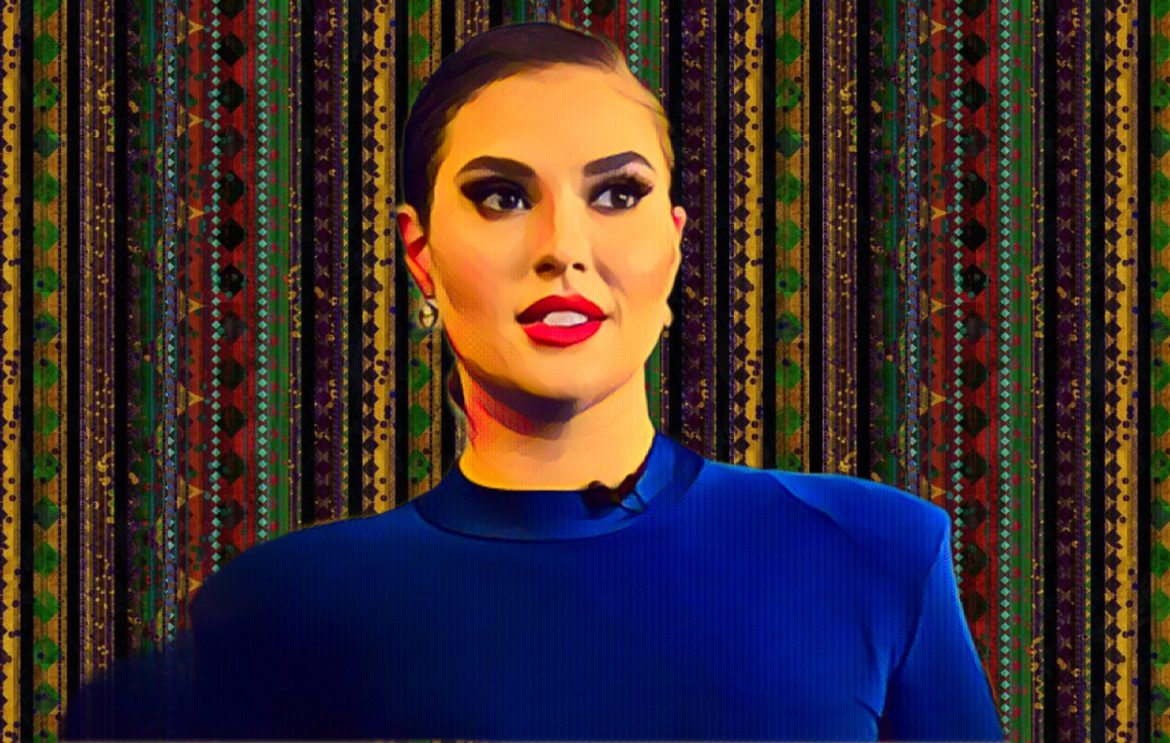Shalimar Abbiusi, a Belgian national and spokesperson for The New Force, has accused Ghanaian law enforcement of brutal treatment before her deportation. The former beauty queen and philanthropist described her experience as a violation of her rights.
In an exclusive interview with Dr. Ren on Rainbow Radio 92.4FM, Abbiusi revealed that she is pursuing legal action at the ECOWAS court. She believes her case will highlight the need for better treatment of detainees.
“I believe you don’t have to be physically present to make an impact. That’s why I’m sharing my story,” she said. Abbiusi emphasized that she wouldn’t be seeking legal redress if she had been treated humanely.
Abbiusi expressed a strong desire to return to Ghana to continue her philanthropic work. “I’m fighting for my rights in the ECOWAS court. After the elections, I hope to return and make a positive impact,” she said.
Abbiusi recounted the ordeal she endured. She was detained in a dirty bunker for seven days before being deported. “It was a traumatic experience,” she said. The conditions in the detention facility were deplorable, she added. She was locked up with men and other nationals, some of whom had been detained for nine months without legal representation or contact with the outside world.
“I was appalled to see people detained for such a long period without any legal help or even a phone call,” she said. Abbiusi described the environment as inhumane, with inadequate sanitation and no opportunity to change clothes. “The circumstances were very dirty. There was just a thin mattress on the floor and a small piece of soap,” she recalled.
She emphasized the need for Ghanaians to speak out against the harsh treatment of detainees by the Immigration Service and the National Intelligence Bureau. “If this is how they treat me, imagine what Africans and Ghanaians face daily. It’s crucial to speak up,” she added.
Abbiusi was later transferred to a more secure cell at the National Intelligence Bureau, where she spent another seven days. The conditions there were equally harsh. “It was a horrible experience. People are not speaking about this because they are being silenced. I think it is my responsibility now to speak for those people because it is inhumane,” she said. Despite these experiences, Abbiusi expressed her desire to return to Ghana. She considers Ghana her second home, having established a strong network and life there. “I want to go back because it’s my home. I have the proper paperwork and a life there,” she said.
Abbiusi hopes her legal battle will bring attention to human rights violations in Ghana. “We need to shed light on these issues. People are being silenced, and it’s my responsibility to speak for those who can’t,” she said.
Speaking further, Abbiusi highlighted the emotional toll the experience has had on her. “It affected me emotionally. It was a traumatic experience,” she said. The fact that detainees were mixed with men and other nationals from various countries only added to the stress. “I was shocked, honestly. I was appalled that some people were sitting there for nine months without any legal representation, without a phone call, without anything for immigration issues, and I don’t think that was right,” she said.
Abbiusi revealed that after her time in the bunker, she was moved to the National Intelligence Bureau. This facility had maximum security and was even more secluded. She described the conditions as unbearable, with limited access to basic amenities. “The food was the least of my problems. There were feedings three times a day; they gave us ‘gobe,’ banku, and tea with bread. But the circumstances there were inhumane,” she said. Abbiusi stressed that there was no opportunity to change clothes, and the hygiene conditions were terrible. “There was just a thin mattress on the floor; there was just a small piece of soap to wash yourself; there was no cleaning underway. So it was just a big black bunker,” she added.
Despite her ordeal, Abbiusi remains determined to continue her work in Ghana. She sees herself as an advocate for those who cannot speak out. “I want to be a voice for the voiceless and speak up for those who nobody is listening to,” she said. Abbiusi is confident that her fight for justice at the ECOWAS court will have a positive impact. She hopes it will lead to better treatment of detainees and respect for human rights in Ghana.
Shalimar Abbiusi’s experience highlights serious concerns about the treatment of detainees in Ghana. Her story sheds light on the need for legal and human rights reforms. As she continues her fight at the ECOWAS court, Abbiusi remains hopeful that her efforts will lead to positive change and justice for all those affected.
Source: Ghana Web




